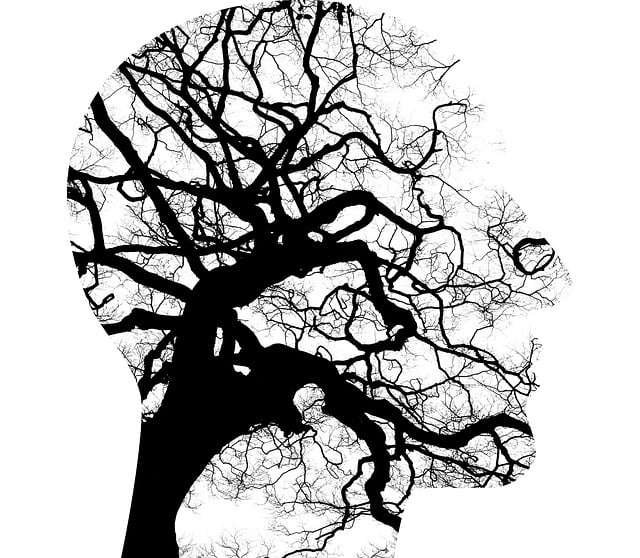Arvada ADD-ADHD Therapy prioritizes risk assessment and harm minimization for client safety, especially for individuals with trauma or complex mental health conditions. This involves cultural competency training, Mental Health Education Programs, and Community Outreach initiatives. Professional judgment guides risk mitigation strategies, enhanced by continuous learning and Mind Over Matter principles. Individualized plans focus on mood management skills, effective communication, and emotional intelligence education. Proactive monitoring and adaptability ensure personalized support tailored to evolving needs in a stigma-reducing environment.
In Arvada, Colorado, seeking effective therapy for ADD/ADHD is more crucial than ever. Risk assessment and harm minimization planning are paramount in ensuring safe and successful treatment outcomes. This comprehensive guide explores essential elements of risk assessment in therapy, from identifying potential hazards to implementing tailored strategies. Delve into the intricate process, highlighting professional judgment, individualized approaches, and continuous monitoring for optimal client safety, especially relevant to Arvada ADD-ADHD Therapy.
- Understanding Risk Assessment: Identifying Potential Hazards in Therapy
- Harm Minimization Planning: Strategies for Safe and Effective Treatment
- The Role of Professional Judgment in Risk Evaluation
- Individualized Approaches: Tailoring Plans to Unique Client Needs
- Continuous Monitoring and Adaptation: Ensuring Client Safety Throughout Therapy
Understanding Risk Assessment: Identifying Potential Hazards in Therapy

Risk assessment is a cornerstone of effective therapy, especially in specialized fields like Arvada ADD-ADHD Therapy. It involves meticulously identifying and evaluating potential hazards or risks that may arise during the therapeutic process. By proactively understanding these risks, healthcare providers can implement harm minimization strategies to ensure client safety and well-being. This proactive approach not only boosts confidence but also fosters a supportive environment, particularly for clients navigating trauma or dealing with complex mental health conditions.
In the context of Arvada ADD-ADHD Therapy, risk assessment might encompass recognizing triggers related to attention deficits, anxiety, or impulsive behaviors. Equally important is considering cultural competency training, as it enables healthcare providers to tailor their approach to meet the unique needs of diverse clients. This holistic view ensures that trauma support services are seamlessly integrated into the therapeutic journey, promoting healing and growth.
Harm Minimization Planning: Strategies for Safe and Effective Treatment

Harm Minimization Planning is a crucial component of effective therapy practices, especially in treating conditions like ADD/ADHD in Arvada. This approach focuses on strategies to mitigate potential risks and ensure client safety during and after treatment. By implementing well-designed Mental Health Education Programs, therapists can empower individuals with knowledge about their condition, teaching self-care practices that promote resilience and overall mental health.
Community Outreach Program Implementation plays a significant role in harm minimization by connecting clients with support networks outside the therapy setting. This could include referrals to local support groups, community resources, or self-help organizations dedicated to ADD/ADHD awareness and management. Such initiatives foster a sense of belonging and provide individuals with additional tools to navigate challenges associated with their condition, ultimately enhancing the effectiveness of Arvada ADD-ADHD Therapy.
The Role of Professional Judgment in Risk Evaluation

In the field of Arvada ADD-ADHD Therapy and mental health services, professional judgment plays a pivotal role in risk assessment and harm minimization planning. Therapists and mental health professionals bring a wealth of knowledge, experience, and specialized training to evaluate potential risks associated with treatment, ensuring client safety is paramount. Their expert judgment considers not only the immediate risks but also the broader implications for long-term mental wellness. This involves meticulously analyzing individual client profiles, past experiences, and unique circumstances to tailor risk minimization strategies effectively.
The Mental Wellness Podcast Series Production highlights the importance of continuous learning and staying abreast of best practices in risk management. Professionals constantly refine their approaches, drawing from research findings and peer discussions, to enhance their decision-making processes. By embracing Mind Over Matter Principles, therapists foster an environment that encourages open communication and proactive risk mitigation, ultimately contributing to improved outcomes for clients navigating various mental health challenges.
Individualized Approaches: Tailoring Plans to Unique Client Needs

In the context of Arvada ADD-ADHD Therapy, individualized approaches are paramount to effectively addressing unique client needs. Each individual with Attention Deficit Disorder (ADD) or Attention Deficit Hyperactivity Disorder (ADHD) has distinct challenges and strengths. Therefore, harm minimization planning should be tailored to reflect these nuances. By incorporating personalized strategies that cater to specific learning styles, interests, and emotional intelligence, therapists can significantly enhance the outcomes of treatment.
Effective communication strategies are a cornerstone of this individualized approach. Fostering open dialogue and teaching emotional intelligence techniques enable clients to better understand and manage their moods. This, in turn, supports improved focus, decision-making, and overall functioning. Incorporating mood management skills into harm minimization plans empowers individuals with ADD/ADHD to proactively navigate challenges, thereby reducing potential risks and promoting a more balanced and productive life.
Continuous Monitoring and Adaptation: Ensuring Client Safety Throughout Therapy

In the dynamic field of Arvada ADD-ADHD Therapy, continuous monitoring and adaptation are pivotal to ensuring client safety and achieving positive outcomes. This involves regular assessment of treatment progress, patient feedback, and environmental factors that may impact therapy effectiveness. By staying agile and responsive, therapists can promptly adjust strategies, techniques, or goals as needed, fostering a personalized journey towards healing and growth.
Such proactive measures not only safeguard clients but also reflect the evolving nature of mental health care. In line with public awareness campaigns for Mental Illness Stigma Reduction Efforts, continuous monitoring challenges societal perceptions by demonstrating that therapy is an adaptive process, benefitting from both patient courage and practitioner flexibility. This approach aligns with Trauma Support Services goals, ensuring individuals receive tailored support designed to meet their unique needs in a rapidly changing landscape.
Risk assessment and harm minimization planning are paramount in effective therapy, especially for complex conditions like ADD-ADHD in Arvada. By identifying potential hazards, implementing tailored strategies, and continuously monitoring client safety, therapists ensure a secure and beneficial therapeutic journey. Integrating professional judgment with individualized approaches allows for dynamic adaptation, addressing unique needs and fostering positive outcomes. This comprehensive approach to risk management is essential for providing high-quality care and promoting the well-being of clients navigating the challenges of ADD-ADHD.












